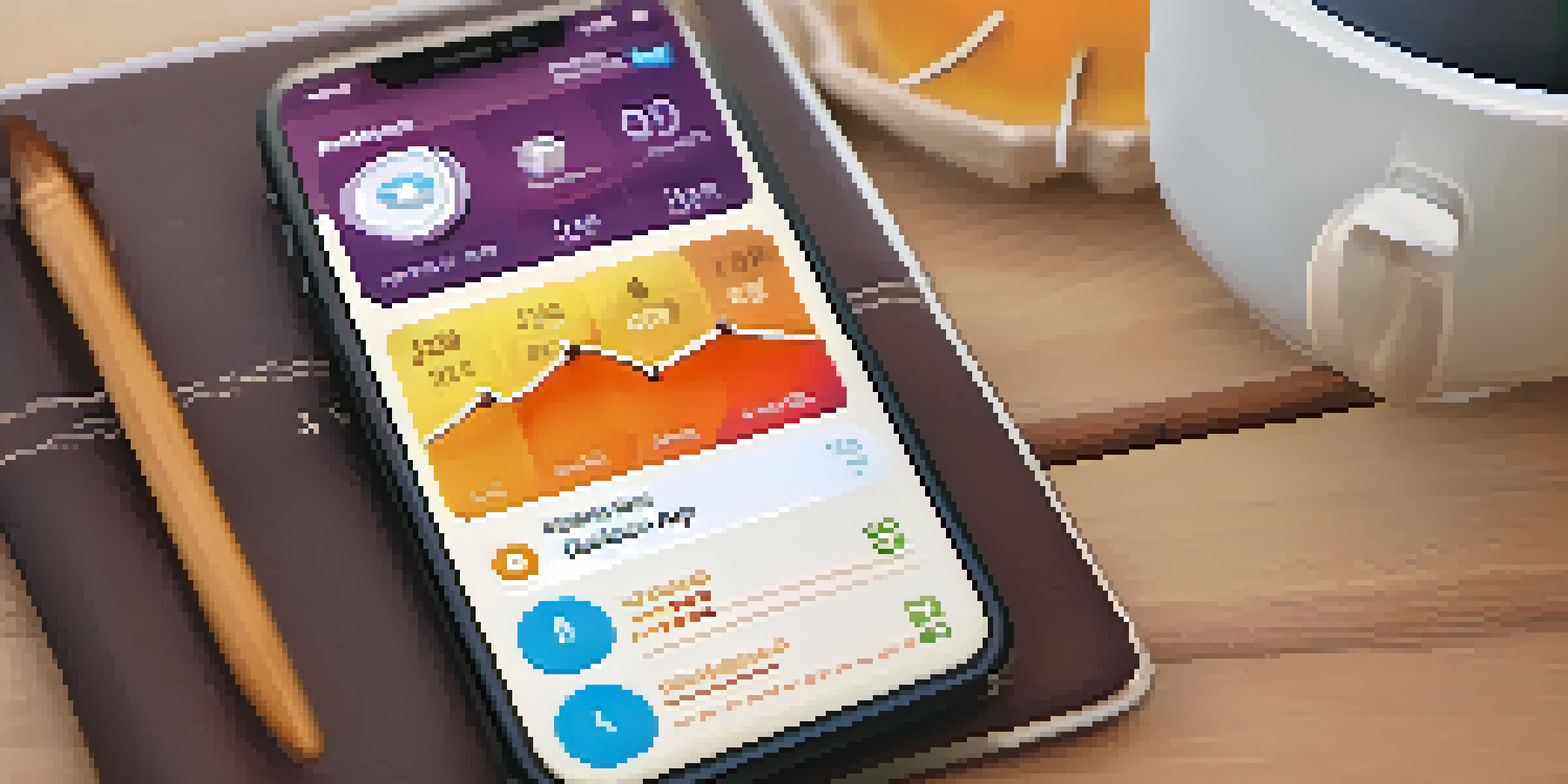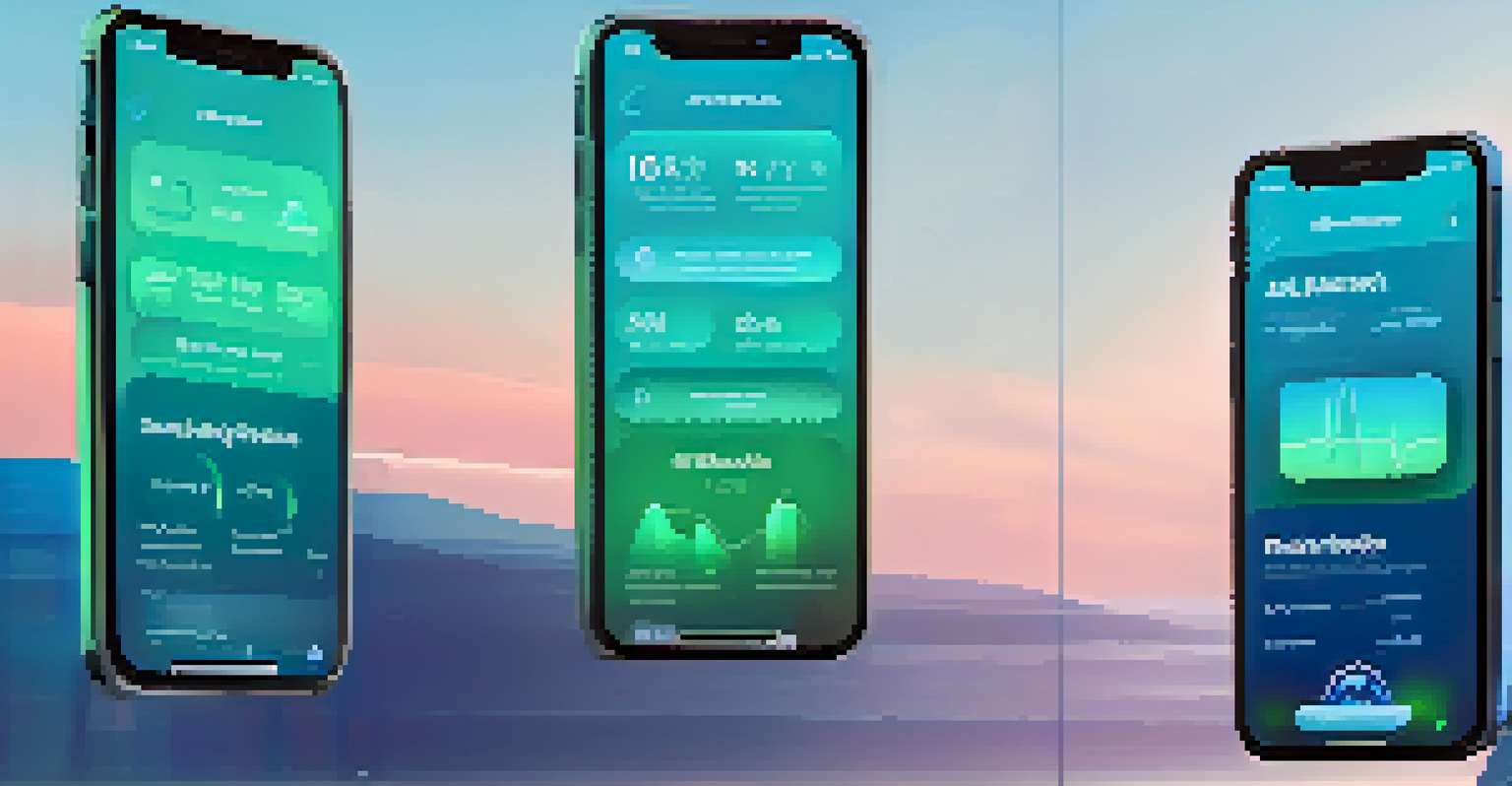Mobile Apps Revolutionizing Chronic Disease Management

Understanding Chronic Diseases and Their Challenges
Chronic diseases, such as diabetes and heart disease, are long-term health conditions that require ongoing management. These diseases can significantly impact a person's quality of life and often necessitate frequent medical appointments, lifestyle adjustments, and medication adherence. Patients face numerous challenges, including the complexity of treatment plans and the need for consistent self-monitoring.
The greatest medicine of all is to teach people how not to need it.
The burden of managing a chronic disease can be overwhelming and may lead to feelings of isolation or anxiety. Traditional healthcare approaches often lack the personalization needed to cater to individual patient needs. This is where technology, particularly mobile apps, steps in to offer innovative solutions that bridge the gap between healthcare providers and patients.
By leveraging the convenience of smartphones, mobile apps provide patients with tools to actively manage their conditions. This shift empowers individuals to take charge of their health in a way that fits into their daily lives.
Mobile Apps: The Game Changer in Patient Engagement
One of the most significant advantages of mobile apps in chronic disease management is their ability to enhance patient engagement. These apps often feature interactive elements that encourage users to track their symptoms, set reminders for medications, and log their daily activities. By making health management more interactive, patients are more likely to stay engaged with their treatment plans.

For instance, a diabetes management app might allow users to input their blood sugar levels and receive instant feedback on whether they are within their target range. This immediate response can motivate patients to maintain their routines and make healthier choices. Additionally, gamification elements, such as rewards for achieving health goals, can further boost motivation.
Mobile Apps Boost Patient Engagement
Mobile apps enhance patient engagement by providing interactive tools for tracking symptoms and managing treatment plans.
The result is a more proactive approach to health management, where patients feel like active participants rather than passive recipients of care. This engagement can lead to better health outcomes and improved patient satisfaction.
Data Tracking: A New Era of Personalized Care
Mobile apps enable users to collect and store health data in real-time, paving the way for personalized care. By tracking vital metrics such as blood pressure, glucose levels, and physical activity, apps can provide insights that help both patients and healthcare providers understand trends over time. This data-driven approach can lead to more tailored treatment strategies that cater to individual needs.
Technology is best when it brings people together.
For example, a heart disease management app might analyze a user’s activity patterns and suggest tailored exercise regimens based on their progress. This personalized feedback not only makes management more effective but also instills a sense of accountability in patients. They can see firsthand how their efforts impact their health.
Moreover, sharing this data with healthcare professionals can foster better communication and collaborative decision-making. When providers have access to up-to-date information about their patients, they can make more informed choices, ultimately leading to improved treatment outcomes.
Telehealth Integration: Bridging the Gap
Many mobile apps now incorporate telehealth features, allowing patients to consult healthcare providers from the comfort of their homes. This integration is particularly beneficial for individuals with chronic conditions who may struggle with mobility or live in remote areas. Through video calls and messaging, patients can receive timely advice and support without the stress of traveling to appointments.
Telehealth functionality also means that routine check-ups can be conducted more efficiently. For instance, a patient with a chronic respiratory condition can quickly discuss symptoms with their doctor via an app, rather than waiting weeks for an in-person appointment. This convenience not only saves time but can also lead to quicker interventions when issues arise.
Data Tracking Enables Personalized Care
Real-time health data tracking through mobile apps allows for more personalized treatment strategies tailored to individual needs.
As healthcare continues to evolve, the seamless blend of mobile apps and telehealth ensures that patients receive the support they need when they need it. This model of care promotes continuity and reduces the risk of complications that can arise from delayed treatment.
Community Support: Building Connections Through Apps
Mobile apps are increasingly incorporating community support features, allowing users to connect with others facing similar health challenges. This sense of community can be invaluable for individuals managing chronic diseases, as it provides emotional support and shared experiences. Users can join forums, participate in group challenges, or seek advice from peers who understand their struggles.
For example, an app designed for individuals with rheumatoid arthritis might include forums where users share tips on managing pain or discuss medication side effects. These interactions can help reduce feelings of isolation and empower users to navigate their conditions with confidence. Additionally, knowing that others are facing similar challenges can motivate patients to stay on track with their health goals.
The power of community extends beyond just emotional support; it can also lead to valuable insights and strategies that users might not discover on their own. This collaborative environment fosters a sense of belonging that enhances overall well-being.
Enhancing Medication Adherence with Reminders
One of the most critical aspects of managing chronic diseases is medication adherence. Mobile apps play a pivotal role in helping patients remember to take their medications on time. Many apps come equipped with features like customizable reminders and alerts that notify users when it’s time to take their medication, ensuring that they stay on track.
For instance, a hypertension management app might send push notifications to remind users to take their blood pressure medication in the morning. These timely reminders can significantly improve adherence rates, leading to better health outcomes. Furthermore, some apps allow users to track their medication supply and notify them when it's time to refill their prescriptions.
Telehealth Enhances Access to Care
The integration of telehealth features in mobile apps allows patients to consult healthcare providers conveniently from home.
By simplifying the often-complex task of medication management, mobile apps reduce the likelihood of missed doses and potential health complications. This not only boosts patient confidence but also contributes to the overall effectiveness of their treatment plans.
Future Outlook: Innovations on the Horizon
As technology continues to advance, the future of mobile apps in chronic disease management looks promising. Innovations such as artificial intelligence (AI) and machine learning are paving the way for even more personalized experiences. These technologies can analyze user data to identify patterns and predict health issues before they arise, allowing for proactive management.
Imagine an app that not only tracks your symptoms but also learns from your behavior over time, offering tailored suggestions for lifestyle changes. This level of personalization could revolutionize how chronic diseases are managed, shifting the focus from reactive to proactive care. Additionally, advancements in wearable technology will likely enhance data collection, providing even more comprehensive insights into patients’ health.

With continuous improvements and a growing emphasis on patient-centered care, mobile apps will undoubtedly play a crucial role in shaping the future of chronic disease management. The goal is to create an ecosystem where individuals are empowered to take control of their health, supported by technology that meets their unique needs.